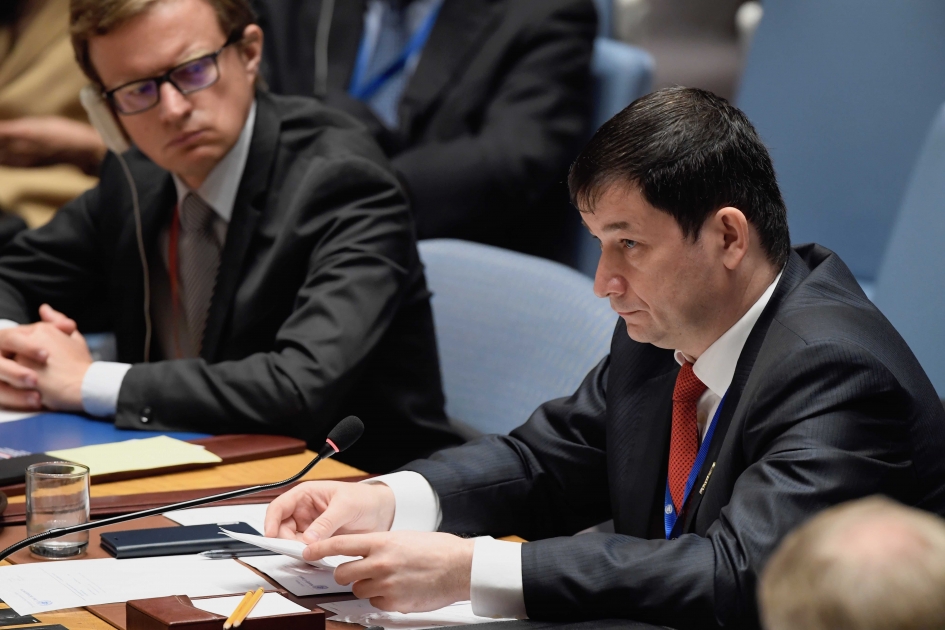Statement by Ambassador Vassily A. Nebenzia, Permanent Representative of the Russian Federation to the United Nations, after the vote on the UN Security Council resolution on extending the sactions on South Sudan
The Russian delegation abstained in the voting on resolution 2428 (2018), on extending the sanctions on South Sudan.
We are not trying to whitewash the situation in the country. We know that various parties continue to violate the ceasefire regime there and that the humanitarian situation is still serious.
However, it is also clear that there has been some positive movement in the settlement process. Besides the meetings that have already taken place between the South Sudanese leaders Salva Kiir Mayardit and Riek Machar, it includes the signing on 27 June of the Khartoum Declaration and the plans made for holding the long-awaited negotiations in Nairobi in the very near future.
In less than a month, thanks entirely to the efforts of the Intergovernmental Authority on Development (IGAD), the format set up for contact between South Sudan’s politicians has been transformed into a full-on negotiation platform before our eyes. We agree with our Ethiopian colleague when he said, “If that is not progress, then what is?” Can those who genuinely care about seeing peace come to this long-suffering country really believe otherwise?
In the circumstances, it would make sense to support the approach of the African Union — the importance of strengthening our partnership with which we will be discussing in the Security Council next week — as well as to express our solidarity with the mediation efforts of IGAD, whose members, as we know, have declared unequivocally that expanding the sanctions pressure on South Sudan is highly inopportune.
We regret that today our Council has taken this disappointing approach. Instead of listening to the regional position, our colleagues mindlessly brandished the sanctions stick. We believe firmly that imposing sanctions on active participants in the political process or members of the Government is counterproductive. Nor will an arms embargo have a positive effect on the political settlement process.
To hear our American colleagues, one might conclude that the embargo is a panacea for almost all ills. We all know perfectly well that South Sudan is indeed flooded with weapons, but attempts to restrict the supply should not be directed only at Government forces. The experience of the neighbouring countries in the region shows that it is not embargoes that bring about an end to armed violence but systematic efforts to reform security structures, the implementation of weapons-collection programmes from the people, and the disarming and demobilizing of combatants.
Lastly, I should not omit to say that we have increasing questions about the working methods of the penholders, thanks to whose efforts the deep split in the Council over the South Sudan dossier continues. Such actions can hardly contribute to strengthening the authority of the Council or of the United Nations generally, a subject that those who supported today’s resolution claim to care so much about. As we can see, their actions prove the opposite.
As for Russia, we did not support and will not support a policy of imposing decisions on independent countries and regions that suit forces outside the region for domestic political or other reasons. It is to be hoped that despite today’s destructive step, the fragile process of establishing a constructive dialogue between the parties in South Sudan will not be undermined, and that IGAD’s mediation efforts will continue.
